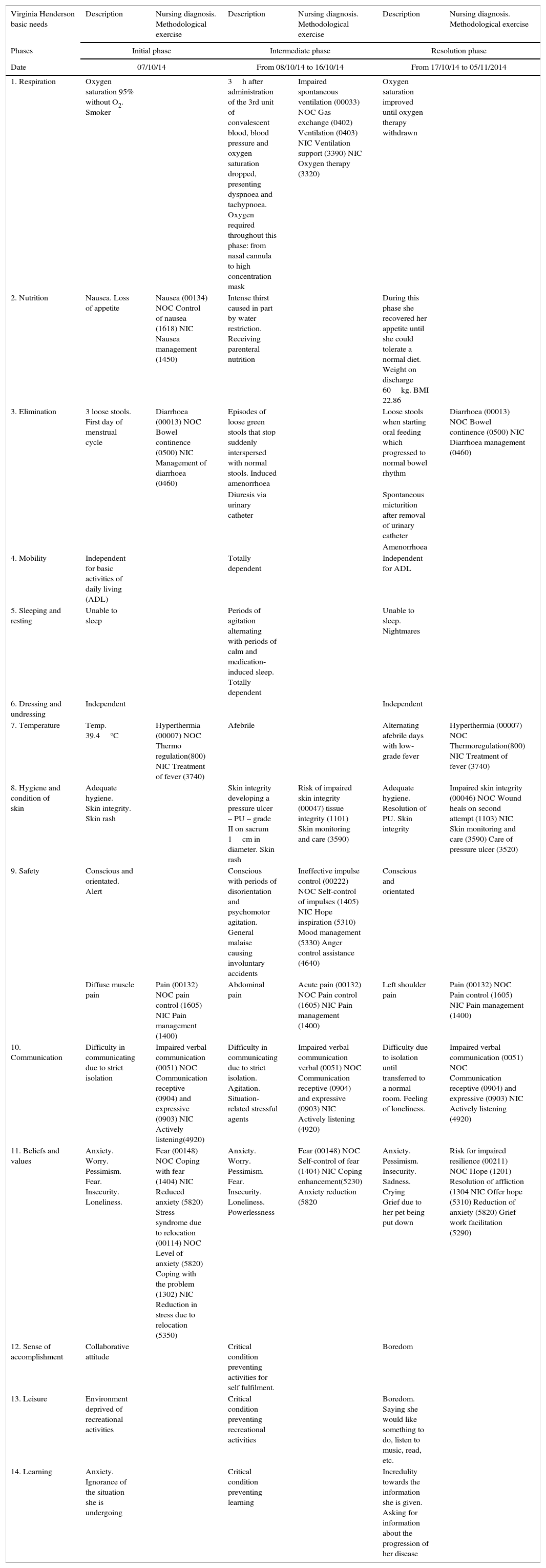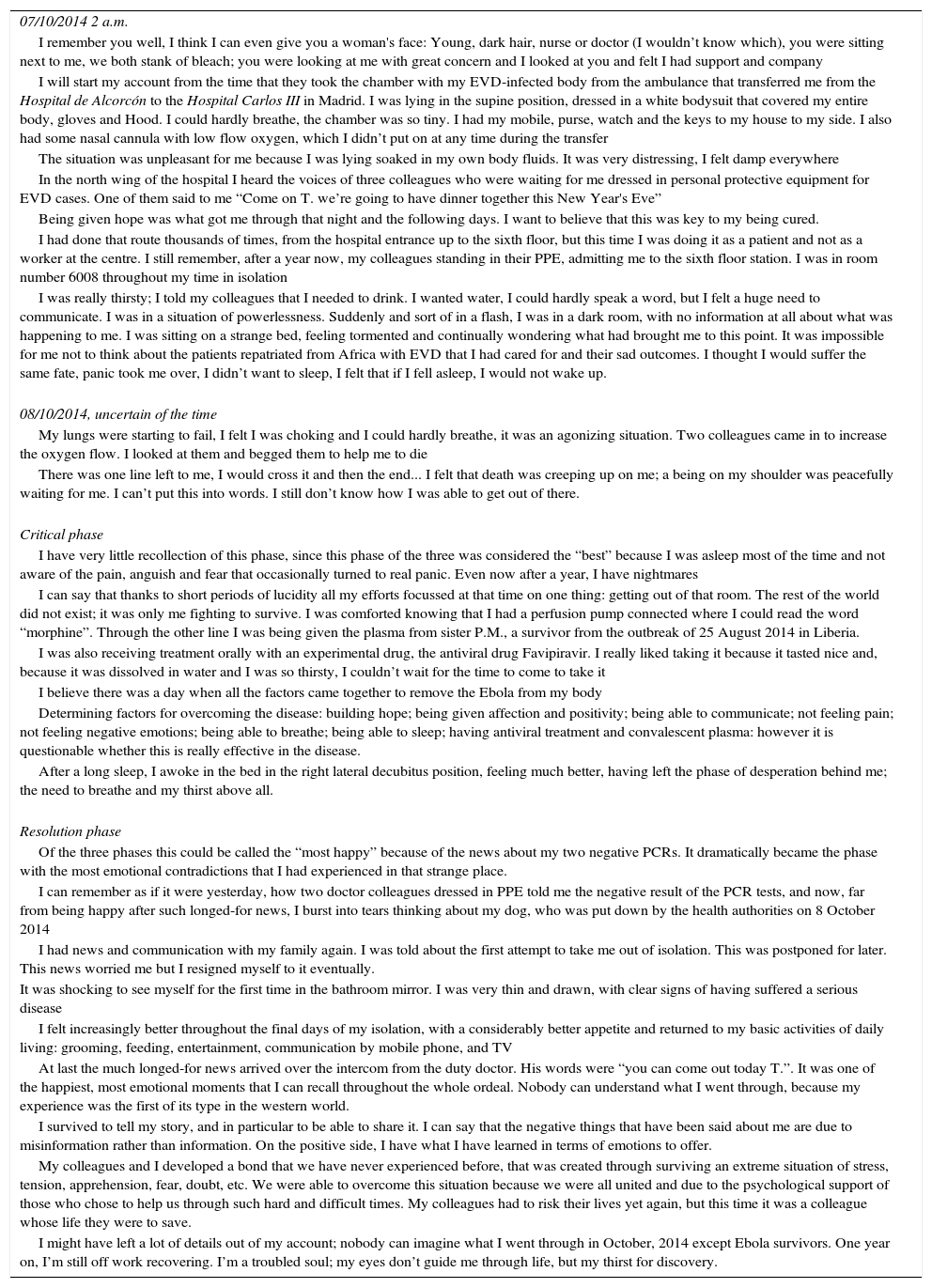After the evacuation from Africa to Western hospitals of several international workers with the Ebola virus disease, the first case of contagion outside Africa occurred in Madrid, Spain. A nursing care assistant who had attended a missionary repatriated from Sierra Leone contracted the disease. On October 7th 2014, the patient arrived at the University Hospital La Paz-Carlos III in Madrid. She remained in the hospital for 30 days, 25 of which were in strict isolation in a negative pressure room with air lock anteroom; personal protective equipment was required. During the last five days, the patient was moved to a standard room. Protection measures were used in accordance with the Hospital Occupational Health Department.
According to its evolution, we differentiate three phases with specific care demands which were conditioned by the risk of transmission, forcing extreme measures of prevention. The largest numbers of direct interventions fall within the realm of the nursing profession.
It is essential that specialized units with regular training be created for highly contagious diseases. In addition, this and other cases should be analyzed from the point of view of nursing, to allow standardized care. We also recognize the importance of managing communication to prevent social unrest and stigmatization of staff.
Tras la evacuación de varios trabajadores internacionales con enfermedad del virus Ébola a centros de Occidente se produjo en Madrid, España, el primer caso de contagio fuera de África. Se trató de una Técnica de Cuidados Auxiliares de Enfermería que había atendido a un misionero repatriado desde Sierra Leona. El 7 de octubre de 2014 la paciente llegó a las instalaciones del Hospital Universitario La Paz-Carlos III de la Comunidad de Madrid. Permaneció ingresada 30 días, 25 en aislamiento estricto en una habitación con presión negativa y con esclusa para la retirada del equipo de protección individual. Los 5 últimos días fue trasladada a una habitación estándar. Se utilizaron las medidas de protección conforme a las indicaciones del Servicio de Prevención de Riesgos Laborales del Hospital Universitario La Paz-Carlos III.
Acorde a su evolución diferenciamos tres fases con demandas específicas de cuidados que estuvieron condicionados por el riesgo de transmisión, lo que obligó a extremar las medidas de prevención. El perfil profesional sobre el que recayó el mayor número de intervenciones directas fue el de enfermería.
Es fundamental que se creen unidades especializadas para enfermedades altamente contagiosas con entrenamiento y formación periódica además de analizar desde el punto de vista enfermero este y otros casos que permitan estandarizar la atención. También consideramos primordial el manejo de la comunicación para prevenir la alarma social y la estigmatización del personal.
Artículo
Comprando el artículo el PDF del mismo podrá ser descargado
Precio 19,34 €
Comprar ahora








